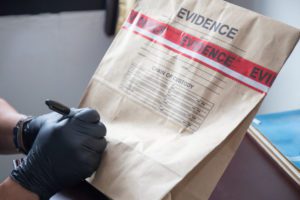
The 4-3 New Jersey Supreme Court majority continued in relevant part: The State also introduced testimony from Rosa Flores, Salazar’s wife and Flores’s sister, and Hazel Forrester, who had been in a relationship with Hannah. Rosa Flores testified that a person who identified himself as Rabb spoke to Salazar on the phone at around 11 p.m. on June 6, and that Salazar and Flores left after the call. Hazel Forrester testified that Hannah appeared at around 11:30 p.m. at the apartment where she lived with her sister, Arlene, that she overheard him telling her sister that he had killed a person named Fred (Salazar’s nickname), that Hannah told her that he had killed someone, that Fred had previously called the apartment several times, asking for Rabb, and that the phone number on a bloody piece of paper recovered from Salazar’s pocket after the shooting was her sister’s.
No DNA or fingerprint evidence linked Hannah to the victims’ car. Hannah testified that he, LaCue, and Maurice Thomas were heroin dealers, operating independently, in the same area of Jersey City. Among their drug sources were two New York suppliers, Salazar and Flores. Hannah testified that, on the evening of June 6, 1993, LaCue and Thomas were talking to the New York suppliers near their car while Hannah walked away to chat with a woman across the street. He heard gunshots and began to run. According to Hannah, Thomas and LaCue were the gunmen, and Thomas framed Hannah.
Hannah’s testimony was a double-edged sword. On the on hand, it admitted to an unflattering detail in that he was a heroin dealer during our country’s opioid epidemic. The fact that this admission was unflattering could be spun to show that Hannah was being truthful as opposed to self-serving. On the other hand, the testimony carried a grave risk that jurors would convict because although he was not the shooter, as a heroin dealer, he was a different kind of killer that should be locked up whether or not he committed the shooting.
